Business
Canada’s great PONI race – projects of national interest
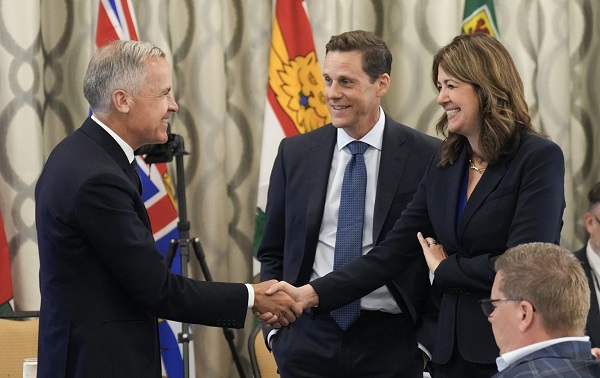
From Resource Works
The Roberts Bank terminal expansion would generate 132,400 jobs across Canada, according to an economic analysis by the Port of Vancouver, generate $9.3 billion in wages, $16.3 billion in GDP and $32.7 billion in economic output. It was approved by the federal government in 2023 with 370 legally binding conditions. The environmental review process has gone on for about a decade now, and continues to get bogged down in a permitting morass.
Sometime this year, the Mark Carney government is expected to announce a list of major “nation-building” projects that it will help advance with its Bill C-5 fast-tracking legislation. These projects have been dubbed as PONIs – projects of national interest. Let’s hope this doesn’t turn into some kind of federal welfare scheme in which the taxpayer ends up footing the full bill. “We should absolutely start with the ones where there’s already a private proponent, not a province seeking subsidies,” says Heather Exner-Pirot, senior fellow and director of energy, natural resources and environment for the Macdonald Laurier Institute.
I would argue that projects that facilitate exports — pipelines, rail, ports — ultimately provide the most economic value because it means increasing market access and getting a higher price for our commodities. I think there’s a strong argument to be made that a new crude oil pipeline to the West Coast and infrastructure needed to develop Ontario’s Ring of Fire mining region are two nation building proposals that would have maximum economic impacts, and therefore should top the PONI priority list. “Energy projects or anything related to manufacturing-value added initiatives should be categorized as nation building projects,” says Ellis Ross, Conservative MP for Skeena-Bulkley.
We need to attract private capital to help build mega-projects. So let’s hope Alberta Premier Danielle Smith can find a proponent in the private sector willing to invest in the new pipeline to the West Coast. So far, it doesn’t look promising. Two Canadian midstream companies – Enbridge and TC Energy – have basically said they’re not interested in Canada anymore and are more focused on the U.S. now. And who can blame them? They wasted hundreds of millions of dollars on pipeline proposals – Northern Gateway and Keystone XL – that became deflated political footballs. But if Danielle Smith can find a private sector partner to build a new crude oil pipeline from Alberta to Prince Rupert, I think that should be a top priority for the Carney government. The Carney government will need to consider just how realistic some of the projects being proposed are. How close to shovel-ready are they? How quickly could they be built?
The federal government’s own criteria for designation of projects for federal support and fast-tracking include:
- projects that “strengthen Canada’s autonomy, resilience and security”;
- contributes to clean growth and climate goals;
- advances First Nations interests; and
- have a high likelihood of success.
To tick that “clean growth” box, Smith’s new pipeline would need to be paired with the Pathways Alliance’s $20 billion carbon capture proposal. That project has private capital behind it, so it’s essentially shovel-ready. While other Canadian premiers have publicly championed their own pet projects for consideration, David Eby appears not to have pitched any projects yet, at least not publicly. Maybe that’s a tacit admission that nation building designations are likely to be limited to one per region, and that a new pipeline to the West Coast – Northern Gateway 2.0 – is the most likely candidate for Western Canada. Or maybe he feels B.C. may not need the federal government’s help in advancing projects in B.C. like Ksi Lisims LNG and new mines – that these projects can be advanced without Ottawa’s help. And that may, in fact, be the case.
B.C. has its own fast-tracking legislation – Bill 15 – with 18 projects already designated. They include the Teck Resources Highland Valley copper mine expansion, Cedar LNG, and Enbridge’s Aspen Point natural gas pipeline network expansion. Just last week, Teck announced the sanctioning of its $2.4 billion project Highland Valley copper expansion project, with construction to start this month. “What B.C. did — I have to give them credit, for once — is they just made it easier for proponents already in the system. They didn’t subsidize, it didn’t cost them money, there is a private proponent, there is a business case. And they just made it easier. And this seems to me to be the right approach.”
In other words, apart from an oil pipeline to Prince Rupert, Exner-Pirot does not believe B.C. necessarily needs to put any PONIs in the federal race. “B.C. is in the enviable position of having great resources, of having LNG, of having tidewater access already,” she said. “They have tens of billions of projects all in the queue with private investors. The territories don’t have that, Manitoba does not have that, Atlantic Canada does not have that. “They shouldn’t really even need the feds. They just need them to get out of the way.”
If there is one major project in B.C. that might warrant a federal designation, it’s the Roberts Bank terminal expansion, Exner-Pirot said. The Roberts Bank terminal expansion was approved by the federal government in 2023 with 370 legally binding conditions. The expansion would generate 132,400 jobs across Canada, according to an economic analysis by the Port of Vancouver, generate $9.3 billion in wages, $16.3 billion in GDP and $32.7 billion in economic output.
Surely this should qualify as nation-building, as it would facilitate the movement of Canadian goods and commodities to markets in the Asia Pacific.
But it has been in an environmental review process that has gone on for about a decade now, and which continues to get bogged down in a permitting morass. So if there is one project in B.C. that could use a federal designation for fast-tracking, it’s the Roberts Bank Terminal expansion, Exner-Pirot said. Otherwise, the only other PONI that B.C. would benefit from is Northern Gateway 2.0. “That would have the biggest GDP impact for Canada,” Exner-Pirot said. B.C. would benefit from billions spent on the B.C. portion of the pipeline. One need only look at the Trans Mountain pipeline expansion project to see what kind of an economic juggernaut a major pipeline project can be, for Alberta, for B.C. and for Canada.
In terms of job creation, TMX generated an estimated 36,917 jobs — 16,476 in Alberta and 16,476 for B.C. – according to Energy Connection Canada. EY has estimated that TMX, which cost $31 billion to build, would generate $52.8 billion in economic activity, add $26 billion to GDP, pay $11 billion in wages, and generate $2.9 billion in tax revenue.
Over the next 20 years, it is expected to generate $17.3 billion in total economic activity and add $9.2 billion to GDP. Oil is Canada’s most valuable export, accounting for 19% of Canada’s total exports. When Alberta’s oil sector is thriving, Canada thrives. Getting a private company to build the new pipeline will require the Carney government to scrap its West Coast oil tanker ban, oil and gas emissions cap, and essentially exempt it from the Impact Assessment Act, otherwise it just ain’t going to happen. As for some of the other major projects being proposed across Canada, like the Grays Bay road and port project and the Churchill port project, they certainly seem to qualify as nation-building projects, but would require massive amounts of public funding. “Those are all ones looking for the government to fund and build,” Exner-Pirot said. “Grays Bay has zero private dollars. They’re looking for 100% covered by the feds. “Is this just regional welfare? Is this an excuse to dole out money to different regions to buy votes? This is what it looks like.”
Nelson Bennett’s column appears weekly at Resource Works News. Contact him at [email protected].
Business
Brave Browser Surpasses 100 Million Monthly Users

|
The privacy-focused Brave browser has reached a major benchmark, announcing it now serves over 100 million people each month across both desktop and mobile platforms.
Founder and CEO Brendan Eich framed the achievement as a shift in user values: “100 million users represent more than a growth milestone, they constitute a movement for a better Web that puts users first,” he stated.
“Across the globe, users are choosing privacy and control over their online experience, instead of Big Tech’s tracking and abuse. Every product we’ve launched since our browser—our search engine, our premium products, our ad platform—has been built with privacy protections. As we expand our AI offerings, we will continue to design for privacy-by-default, which will fuel our next wave of growth.”
Brave’s browser has carved out a loyal user base by offering strong privacy features without compromising compatibility at a time when privacy is under growing threats.
Built on the Chromium engine, it runs the same sites and apps as Chrome but does so while shielding users from invasive tracking.
Over the past two years, Brave has seen steady momentum, gaining around 2.5 million new users monthly.
|
 |
|
In addition to crossing the 100 million monthly active user threshold, the company now records 42 million people using the browser daily.
According to Brave, this level of adoption reflects a larger appetite for tools that operate outside the surveillance-driven models of the dominant tech companies.
“This growth has been fueled by a global awareness that Brave is an alternative to Big Tech and that users benefit greatly from a browser that preserves their privacy and is up to 3 times faster than competitors,” the company stated.
When Apple rolled out the browser choice screen on iOS in the EU earlier this year, part of compliance with the Digital Markets Act, Brave saw its daily installs increase.
Beyond the browser, Brave has built an ecosystem centered on privacy. Its search engine, Brave Search, is one of the few truly independent options available in the Western market.
Unlike other engines tied to advertising giants, Brave Search processes about 1.6 billion user queries each month, roughly 20 billion annually, and delivers more than 15 million AI-powered answers daily.
That AI functionality is expanding. Brave is preparing a new version of its Leo assistant that will include what it calls an “agentic experience.”
According to the company, this will be delivered through a locked-down browser profile that prevents the AI from accessing private data in other tabs or windows.
“As a privacy company, we pride ourselves on adhering to a stronger variation of Google’s old (and since abandoned) mantra,” the company said.
“When we say ‘Can’t be evil,’ we mean we don’t have access to personal user data in the first place.”
Brave has also made its Privacy Preserving Product Analytics (P3A) tool publicly accessible, allowing anyone to examine how it handles analytics without compromising user privacy.
|
Automotive
Canada’s EV subsidies are wracking up billions in losses for taxpayers, and not just in the auto industry

By Dan McTeague
To anyone who thought that the Liberals’ decision to postpone enforcement of their Electric Vehicle (EV) mandate by one year was part of a well-thought-out plan to get that disastrous program back on track, well, every day brings with it news that you were wrong. In fact, the whole project seems to be coming apart at the seams.
Here’s the latest crisis Mark Carney and his carnival of ideologues are having to deal with. Late last year, the Liberal party instituted a 100% tariff on Chinese-made EVs. The idea was to protect the Canadian EV industry from China dumping their vehicles into our country, at prices far lower than Canadian companies can afford due to their massive state subsidies. This has been a major problem in the EU, which is also attempting to force a transition to EVs.
But Beijing wasn’t going to take that lying down. Taking advantage of Western environmentalist sentiment is an important part of their economic plans — see, for instance, how they’ve cornered the global solar panel market, though the factories making them are powered by massive amounts of coal. So they retaliated with a 75% duty on Canadian canola seed and a 100% tariff on canola oil and canola meal.
This was big enough to really hurt Canadian farmers, and Ottawa was forced to respond with more than $300 million in new relief programs for canola producers. Even so, our farmers have warned that short-term relief from the government will do little if the tariffs are here for the long-term.
With pressure on Carney mounting, his Industry Minister Melanie Joly announced that the government was “looking at” dropping tariffs on Chinese EVs in the hope that China would ease off on their canola tariffs.
That may be good news for canola producers, but how about the automotive companies? They’ve grown increasingly unhappy with the EV mandate, as Canadian consumers have been slow to embrace them, and they’ve been confronted with the prospect of paying significant fines unless they raise prices on the gas-and-diesel driven vehicles which consumers actually want to make the EVs that they don’t really want more attractive.
That’s the context for Brian Kingston, CEO of the Canadian Vehicle Manufacturers’ Association, saying that dropping these tariffs “would be a disaster.”
“China has engaged in state-supported industrial policy to create massive overcapacity in EV production, and that plan is coming to fruition now,” Kingston said. “When you combine that with weak labour and environmental standards, Chinese manufacturers are not competing with Canadian, American, or Mexican manufacturers on a level playing field. We simply cannot allow those vehicles to be dumped into the Canadian market.”
The auto manufacturers Kingston represents are understandably upset about suddenly having to compete with underpriced Chinese EVs. After all, with the government forcing everyone to buy a product they really don’t want, are most people going to patriotically pay more for that product, or will they just grab whichever one is cheaper? I know which one I think is more likely.
And then there’s a related problem — the federal and provincial governments have “invested” somewhere in the neighborhood of $52.5 billion to make Canada a cog in the global EV supply chain. In response to Joly’s announcement, Ontario Premier Doug Ford, who has gone “all in” on EVs, wrote an open letter to the prime minister saying that canceling the tariffs would mean losing out on that “investment,” and put 157,000 Canadian automotive jobs at risk.
Now, it’s worth noting that automakers all over Ontario have already been cutting jobs while scaling back their EV pledges. So even with the tariffs, this “investment” hasn’t been paying out particularly well. Keeping them in place just to save Doug Ford’s bacon seems like the worst of all options.
But it seems to me that the key to untangling this whole mess has been the option I’ve been advocating from the beginning: repeal the EV mandate. That makes Canada less of a mark for China. It benefits the taxpayers by not incentivizing our provincial and federal governments to throw good money after bad, attempting to subsidize companies to protect a shrinking number of EV manufacturing jobs.
The heart of this trade war is an entirely artificial demand for EVs. Removing the mandate from the equation would lower the stakes.
In the end, the best policy is to trust Canadians to make their own decisions. Let the market decide.
Support Dan’s Work to Keep Canadian Energy Affordable!
Canadians for Affordable Energy is run by Dan McTeague, former MP and founder of Gas Wizard. We stand up and fight for more affordable energy.
-
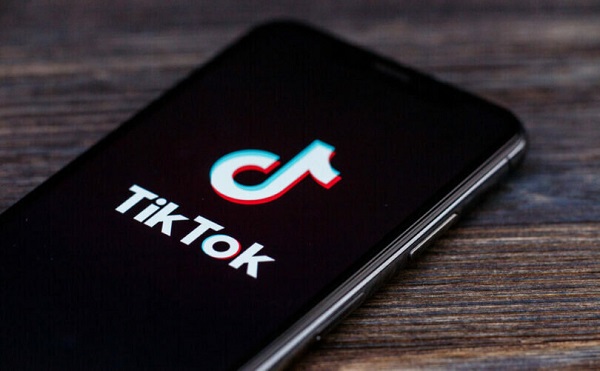
 International2 days ago
International2 days agoNetanyahu hails TikTok takeover as Israel’s new ‘weapon’ in information war
-
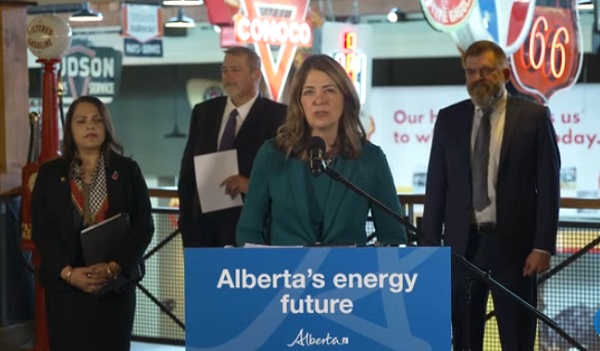
 Alberta2 days ago
Alberta2 days agoAlberta Takes The Lead: With no company willing to spearhead a new pipeline under federal restrictions, Danielle Smith grabs the reins
-
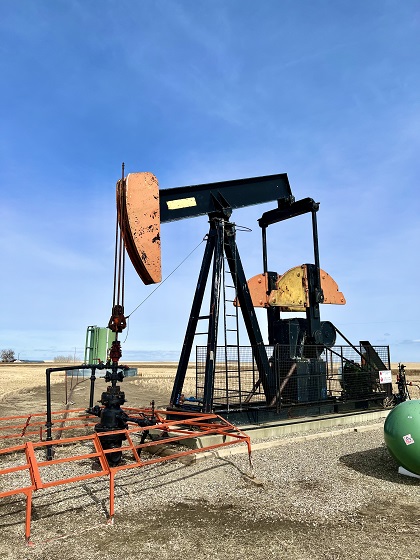
 Alberta2 days ago
Alberta2 days agoTaxpayers: Alberta must scrap its industrial carbon tax
-

 Business2 days ago
Business2 days agoElon Musk announces ‘Grokipedia’ project after Tucker Carlson highlights Wikipedia bias
-

 Bruce Dowbiggin2 days ago
Bruce Dowbiggin2 days agoThe McDavid Dilemma: Edmonton Faces Another Big Mess
-
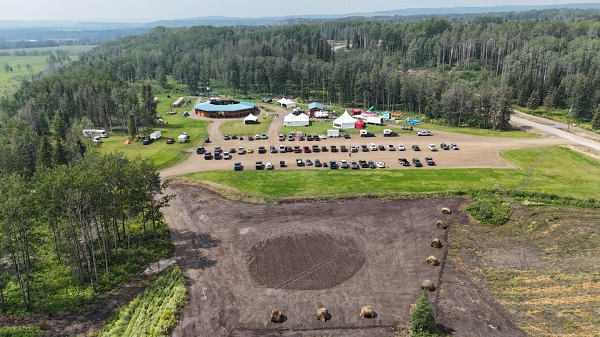
 Alberta2 days ago
Alberta2 days agoHalfway River First Nation makes history with Montney natural gas development deal
-

 Business2 days ago
Business2 days agoBill C-8 would allow minister to secretly cut off phone, Internet service
-

 Censorship Industrial Complex1 day ago
Censorship Industrial Complex1 day agoWhen Did Traditional Values Become Hate Speech?







